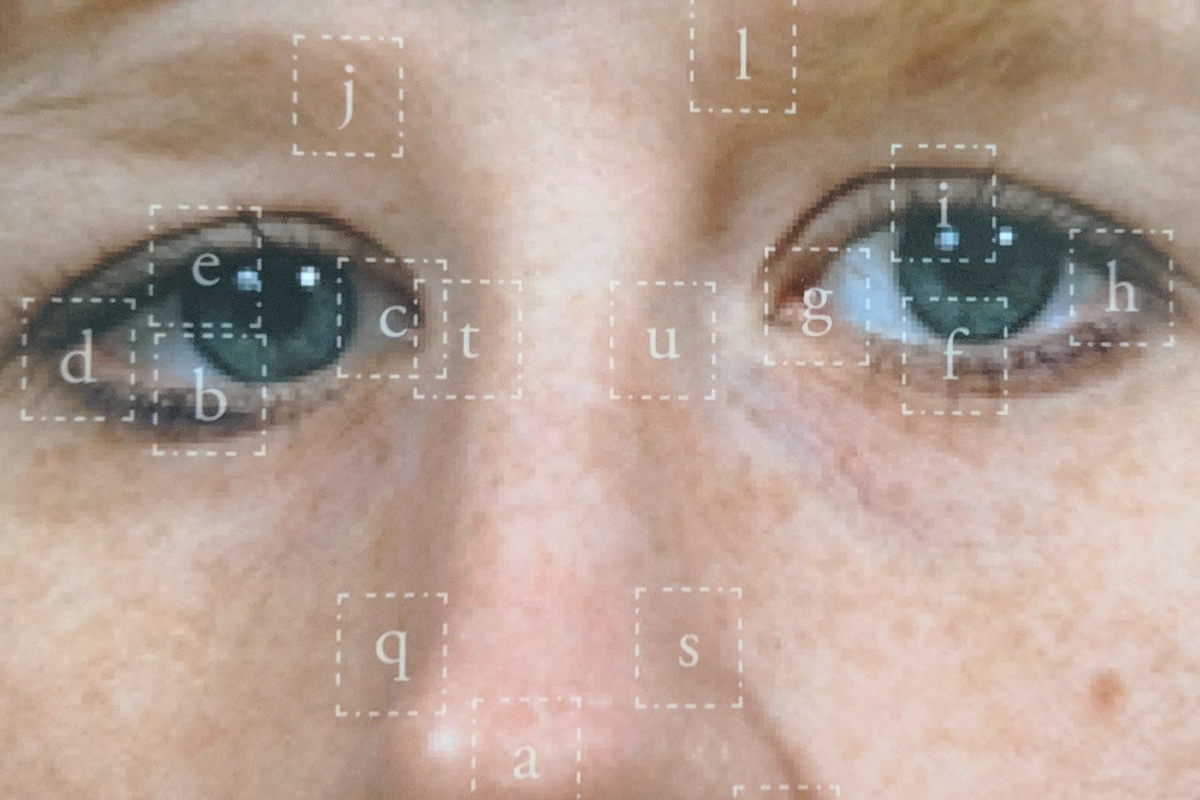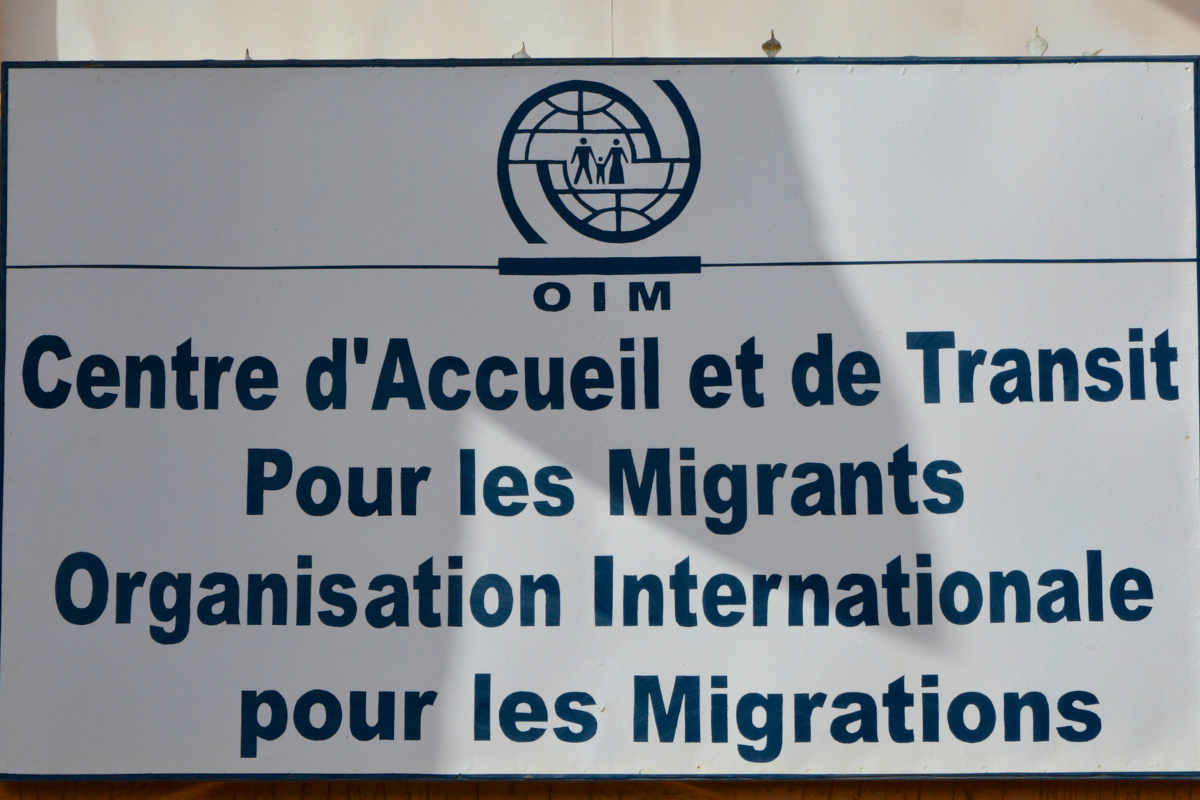Global call to stop facial recognition surveillance
Topic
26 September 2023
Facial recognition and other forms of biometric surveillance pose huge dangers for rights and freedoms in public space. They make it possible for pervasive tracking of individuals' movements and activities; are used to infer or monitor emotions and alleged "suspicious behaviours"; and have been responsible for wrongful arrests and convictions, and the suppression of protests. The dangers they pose are so significant that a coalition of more than 110 civil society organisations (including Statewatch) and 60 eminent individuals are making a simple demand to governments: stop using facial recognition for the surveillance of publicly-accessible spaces and for the surveillance of people in migration or asylum contexts.
Support our work: become a Friend of Statewatch from as little as £1/€1 per month.

Image: Cory Doctorow, CC BY-SA 2.0
This statement was coordinated by European Digital Rights and Big Brother Watch.
Global statement: Stop facial recognition surveillance now!
We have a range of concerns about facial recognition surveillance, ranging from serious concerns about its incompatibility with human rights, to the potential for discriminatory impact, the lack of safeguards, the lack of an evidence base, an unproven case of necessity or proportionality, the lack of a sufficient legal basis, the lack of legislative oversight, and the lack of a democratic mandate.
All of these views lead us to the same conclusion: 180 experts call on police, other state authorities and private companies to immediately stop using facial recognition for the surveillance of publicly-accessible spaces and for the surveillance of people in migration or asylum contexts.
The signatories to this call are civil society organisations and individual experts (including researchers, academics and advisors in technology, privacy, data protection and human rights, lawyers and other professionals).
This letter remains open for additional individual and organisation signatures. To add your signature, go to: https://tinyurl.com/stop-facial-rec-signature.
PAN-EUROPEAN & INTERNATIONAL
• Access Now
• Algorithmic Justice League
• Civil Liberties Union for Europe
• Data Rights
• Electronic Frontier Foundation
• Eticas
• European Center for Not-For-Profit Law Stichting
• European Digital Rights (EDRi)
• European Network Against Racism (ENAR)
• European Sex Workers Rights Alliance (ESWA)
• Fair Trials
• Human Rights Watch
• ILGA-Europe
• Organization for Identity & Cultural Development (OICD.net)
• Statewatch
• WITNESS
• Women's Link Worldwide
AUSTRALIA
• Digital Rights Watch
AUSTRIA
• epicenter.works
• Informational Structures Research Lab
• quintessenz - - Verein zur Wiederherstellung der Bürgerrechte im Informationszeitalter
BELGIUM
• Ligue des droits humains
• petites singularités
• TechnopoliceBXL
CANADA
• Centre for Free Expression
• International Civil Liberties Monitoring Group
• Montreal Institute for Genocide and Human Rights Studies
• OpenMedia
• British Columbia Civil Liberties Association
COLOMBIA
• DEJUSTICIA - CENTER OF LAW, JUSTICE AND SOCIETY
CROATIA
• Gong
• Politiscope
CZECH REPUBLIC
• Iuridicum Remedium
DENMARK
• IT-Political Association
• PROSA - Forbundet af it-professionelle
EGYPT
• Masaar - Technology and Law Community
FINLAND
• Electronic Frontier Finland
FRANCE
• La Quadrature du Net
• LDH (Ligue des droits de l'Homme)
GERMANY
• AlgorithmWatch
• Chaos Computer Club
• Deutsche Vereinigung für Datenschutz e.V. (DVD)
• Digitalcourage
• Forum InformatikerInnen für Frieden und gesellschaftliche Verantwortung / Forum Computer Professionals for Peace and societal Responsibility (FIfF)
• FragDenStaat
• Giodano-Bruno-Stiftung
• Initiative for the preservation of public space
• INSPIRIT Creatives NGO
• SUPERRR Lab
GREECE
• DATAWO
• Homo Digitalis
HUNGARY
• Hungarian Civil Liberties Union
INDIA
• Punjab Women Collective
IRELAND
• Irish Council for Civil Liberties (ICCL)
ITALY
• Coalizione Italiana per le Libertà e i Diritti civili (CILD)
• Hermes Center
• info.nodes
• StraLi for Strategic Litigation
• The Good Lobby Italia
JAPAN
• JCA-NET(Japan)
LATIN AMERICA
• Derechos Digitales
MÉXICO
• Sursiendo, Comunicación y Cultura Digital
THE NETHERLANDS
• Bits of Freedom
• PublicSpaces
• Racism and Technology Center
• Society Vrijbit J.M.T. Wijnberg
• Stop Wapenhandel
ROMANIA
• Asociația pentru Tehnologie și Internet (ApTI)
SERBIA
• SHARE Foundation
SLOVENIA
• Danes je nov dan, Inštitut za druga vprašanja / Today is a new day, Institute for Other Studies
• Povod Institute
• Državljan D / Citizen D
SPAIN
• Irídia - Center for Human Rights
• Ongd AFRICANDO
SWEDEN
• DFRI (Föreningen för Digitala Fri- och Rättigheter)
SWITZERLAND
• AlgorithmWatch CH
• Digitale Gesellschaft
TUNISIA
• Intersection Association for Rights and Freedoms
• Mawjoudin We Exist
TURKEY
• Alternatif Bilisim (AIA-Alternative Informatics Association)
• Association for Monitoring Eqaul Rights (AMER) - Eşit Haklar İçin İzleme Derneği (ESHİD)
UNITED KINGDOM
• Amnesty International UK
• App Drivers & Couriers Union
• ARTICLE 19
• Big Brother Watch
• Defend Digital Me
• Director, Unlock Democracy
• Fair Vote UK
• Foxglove
• INQUEST
• Joint Council for the Welfare of Immigrants (JCWI)
• Liberty
• Migrants' Rights Network
• Netpol
• Open Rights Group
• Privacy International
• Public Law Project
• Race Equality First
• Race Equality Foundation
• Race on the Agenda
• Rainbow Migration
• Red Line for Gulf
• Rights & Security International
• Runnymede Trust
• Stop The Scan campaign by by The Racial Justice Network and Yorkshire Resists
• StopWatch
• Women's Equality Network (WEN) Wales
• Worker Info Exchange
UNITED STATES
• Accountable Tech
• Advocacy for Principled Action in Government
• Defending Rights & Dissent
• Fight for the Future
• Human Rights Data Analysis Group
• National Association of Criminal Defense Lawyers
• NYC DSA Tech Action
• Oakland Privacy
• PDX Privacy
• Restore The Fourth
• Surveillance Resistance Lab
• The Electronic Privacy Information Center (EPIC)
60 INDIVIDUAL EXPERTS
• Abeba Birhane, Senior Consultant, AI accountability, Mozilla Foundation & Adjunct assistant prof, Trinity College Dublin, Ireland; Ethiopia;
• Prof. Alex S. Vitale, Policing and Social Justice Project, Brooklyn College, CUNY, New York; United States;
• Ana Valdivia, Lecturer in AI, Government & Policy at University of Oxford; United Kingdom;
• Dr. Andrew Clement, Professor Emeritus, Faculty of Information, University of Toronto; Canada;
• Andrew McStay, Professor of Technology & Society, Bangor University; United Kingdom;
• Angela Mueller, Head of AlgorithmWatch CH | Head of Policy & Advocacy; Switzerland;
• Dr. Asli Telli, Associate Professor and Research Associate, Wits University, Digital Media and Communications; Germany;
• Dr. Ben Wagner, Associate Professor Human Rights & Technology, TPM, TU Delft; The Netherlands;
• Prof. Blaine A. Price, Professor of Computing at The Open University; United Kingdom;
• Dr Birgit Schippers, Lecturer in Law at University of Strathclyde; Scotland;
• Prof. Carmela Troncoso, EPFL; Switzerland;
• Christelle Tessono, Tech Policy Researcher; Canada;
• Clare Garvie, National Association of Criminal Defense Lawyers; United States;
• Corentin Debailleul, Researcher, IGEAT, Université libre de Bruxelles; Belgium;
• Divij Joshi, Doctoral Researcher at UCL; India / United Kingdom;
• Douwe Korff, Emeritus professor of international law; United Kingdom;
• Ella Jakubowska, Senior advisor on digital rights & one of Politico’s tech 28 class of 2021; Europe;
• Georg Markus Kainz, Privacy activist; Austria;
• Professor Hamed Haddadi, Professor at Imperial College London; United Kingdom;
• Henning Bumann, Data Scientist; Germany;
• Inioluwa Deborah Raji, UC Berkeley; United States;
• James L. Turk, Director, Centre for Free Expression, Toronto Metropolitan University; Canada;
• Javier Ruiz Diaz, Digital Rights and Policy Consultant; United Kingdom;
• Dr Jennifer Cobbe, Faculty of Law, University of Cambridge; United Kingdom;
• Jill Toh, PhD researcher at the University of Amsterdam; The Netherlands;
• Jorgo Ananiadis, President Pirate Party Switzerland; Switzerland;
• Dr. Joy Buolamwini, Author of Unmasking AI: My Mission to Protect What is Human in a World of Machines, Founder of the Algorithmic Justice League, Leader-in- Reaidence at MIT; United States;
• Dr. Julia Slupska, No Tech for Tyrants; United Kingdom;
• Konstantin Macher, Campaigner on biometrics; Germany;
• Dr Leonie Maria Tanczer, Associate Professor at UCL; United Kingdom;
• Dr. Laurens Naudts,AI, Media & Democracy Lab - Institute for Information Law; The Netherlands;
• Lex Gill, Lawyer and Fellow, Citizen Lab; Canada;
• Lotte Houwing, Policy advisor on government surveillance at Bits of Freedom; the Netherlands;
• Prof. Martin Albrecht, Professor of Cryptography, King's College London; United Kingdom;
• Maroussia Lévesque, Harvard Law School; United States;
• Dr. Meg Young, Researcher at Data & Society Research Institute; United States;
• Meredith Broussard, Professor, author of “More Than a Giltch: Confronting Race, Gender, and Ability Bias in Tech”; United States;
• Meredith Whittaker, President of the Signal Foundation; United States;
• Mohammad El Taher, Researcher and Technologist; Egypt;
• Naomi Appelman, University of Amsterdam / Racism and Technology Center; the Netherlands;
• Nayyara Rahman, Digital Civil Rights Activist; Karachi, Pakistan;
• Nicholas Bohm, Lawyer — General Counsel to the Foundation for Information Policy Research; United Kingdom;
• Olaf Griep, LOAD e.V.; Germany;
• Pat Walshe, Privacy Matters; United Kingdom;
• Professor Paul Bernal, Professor of Information Technology Law, UEA Law School; United Kingdom;
• Professor Peter Sommer, Visiting Professor at BCU and DMU; United Kingdom;
• Ray Corrigan, Senior Lecturer in Computing & Communications at The Open University; United Kingdom;
• Rebecka Ambjörnsson, Project leader, human rights; Sweden;
• Dr Rikke Bjerg Jensen, Reader (Associate Professor) in Information Security at Royal Holloway, University of London; United Kingdom;
• Robin Pocornie, AI Justice Activist; the Netherlands;
• Sandra Avila,University of Campinas; Brazil;
• Sebastian Kostadinov, Policy Advisor at Deutscher Bundestag; Germany;
• Dr Siamak Shahandashti, Associate Professor, Cyber Security and Privacy, University of York; United Kingdom;
• Dr. Stephanie Hare, Author of ‘Technology Is Not Neutral: A short guide to technology ethics’; United Kingdom;
• Dr. Steve Walker, Senior Lecturer, School of Computing and Communications, The Open University; United Kingdom;
• Prof. Suresh Venkatasubramanian, Director, Center for Technological Responsibility, Reimagination, and Redesign; Brown University; United States;
• Vahid Razavi, Author and Founder of No Ethics in Big Tech; United States;
• Victoria McEvedy Esq., McEvedys Solicitors & Attorneys Ltd; United Kingdom;
• Dr William Seymour, King's College London; United Kingdom;
• Zuzanna Warso, Director of Research at Open Future Foundation; Poland.
Our work is only possible with your support.
Become a Friend of Statewatch from as little as £1/€1 per month.
Further reading

European police facial recognition system must be halted, warns new paper
A new position paper published today by the European Digital Rights (EDRi) network calls for MEPs to oppose plans to create an EU-wide police facial recognition system that may, in the future, also include the UK. The plans are part of the 'Prüm II' proposals that instrumentalise one of the fundamental principles of the EU – the free movement of people between states – to legitimise the need for even more policing.

UK: Live facial recognition technology should not be used in public spaces
Over 30 human rights organisations, including Statewatch, are calling on the UK parliament and other relevant agencies and bodies to take action to ban the public deployment of live facial recognition technology. An open letter condemns the adoption of guidance for the police that sidesteps many requirements set out by court jurisprudence, and calls for urgent democratic debate on a technology that introduces "a huge shift in the relationship between the individual and the State."

Italy: Interior ministry’s facial recognition system is unlawful
The deployment of facial recognition technology acquired by the interior ministry for deployment in migration and public order contexts was deemed unlawful in a far-reaching decision by the Italian ombudsman on 16 April 2021.
Spotted an error? If you've spotted a problem with this page, just click once to let us know.

